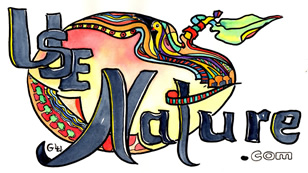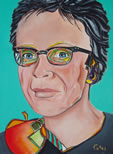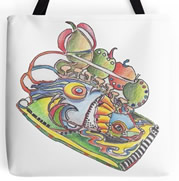useNature.com ... Natural Nutrition and Healthy Diet Rules
Healthy Diet Rules - Nutrition
Holistic Health & Nutrition Directory
useNature's Lifestyle Magazine & Holistic Articles
Article: Nutritional Health - Healthy Diet Rules - Part 13
Balanced Diet - Healthy Diet Rules - Summary
..... by Dieter Luske N.D.-D.C.H.-D.M.H.-D.H
Holistic Therapy Consultant - Gold Coast - Canungra
Healthy Diet Rules Summary & Helpful Hints:
Rule Number One:
Eat within 1 hour of getting up of bed...
Rule Number two:
Don't go more than 5 hours without a Meal or Snack...
Rule Number Three:
Always drink about 200mls of quality water (non-chlorinated) 20-30mins. before a meal or snack. This will decrease your hunger and makes sure you drink enough water...
On a fat burning diet, you need to drink more water than if you were on a high carbohydrate diet.
Practice the basic Balance Ratio Concept, every time you put food in your mouth aim for a combination of Protein - Carbohydrates & Fats.
The Ratio is simple:
Almost equal calories of each. (slightly more Carbohydrate).
Maximum control of insulin occurs if the gram ratio of Carbohydrate to Protein to Fat is
9 : 7 : 1.5
Therefore, the size of the portions will reflect this fact:
Carbohydrates (vegies, fruit and some grains) will make up the largest portion of your meal, protein next ( your palm size) and fat last.
Wild game, organic or range-fed beef and chicken are preferable sources of protein.
Have some proteins "ready to use" in the fridge; sliced turkey, or chicken, tins of Tuna, Salmon, Sardines, soft boiled eggs, cottage cheese, firm Tofu-dip, hard cheese.
Grains and starches should never be your primary carbohydrate source at a meal, and never more than 25% of your total carbohydrate content of your meal...
If oyu suffer from inflammatory health conditions, it may help to cut out grains.
Tips:
If you like desserts, spare 1 part of your Carbohydrates to include some fruit for desert.
If you like Wine , do the same as above...
1glass of wine 120ml. = 1part of Carbo.
30ml. distilled spirits = 1 Carbo.
180ml of beer = 1 Carbo.
If you want to add more protein to your meal, simply add carbohydrate and fat to keep everything in balance.
'However, if in one day you eat more protein than your body requires, the excess will be turned into fat.'
Hunger may be experienced during the first few days of the diet.
Simply increase your menu with a bit more food, till your metabolism has adjusted to the fat burning mode.
This is a Nutritional eating plan, not a fad diet, if you get hungry ..... eat.
Important food quality self check:
-
If you eat a meal that leaves you satisfied and with a good mental focus for the next 4 hours, - write it down, it works for you, use it again...
-
If you feel hungry and fatigue less than 4 hours after your last meal, you had too much Carbohydrate. ( you may experience low-bloodsugar problems)
-
Hunger without fatigue, you had too much Protein.
-
Normal appetite after 4 hours - you have the right balance of protein, carbohydrate and fat.
Always have a Snack 30mins before you exercise.
Within 2-3 days you will feel a reduction in food cravings, increased mental focus and energy.
Fat loss about 1/2kg per week.
Increase your exercise level. As you become less heavy and feel more energy, you will naturally want to be more active.
And finally, why does it all work?
Most lower carbohydrate diets work because they control the production of insulin.
The digestive system treats all carbohydrates (pasta, rice, breads, cereals) the same... as if they were glucose sugar.
Glucose causes the pancreas to pump out insulin into the blood.
Insulin tells the muscles, liver and fat cells to store away as much glucose as they can, burn the remaining carbohydrates and save dietary fat for later.
In the presence of a lot of carbohydrates, insulin teaches the cells to reduce fat burning and burn carbs instead.
Here is another problem often overlooked:
Insulin has a long half-life in our bloodstream. Longer than it takes to store away the glucose. This causes us to run out of blood sugar and get tired in a few hours. Our head then goes into brain-fog and sends down a request for more glucose.
The fat cells say, "I'd like to oblige, Mr. Brain, but insulin is still floating around and so I'm still in Storage Mode."
The Brain says, "I don't care where you get it, just get something sweet to eat!!" - Grab that cookie.
If you eat too much carbohydrates, you don't burn fat, because you have carbohydrates to burn instead, storing the fat.
Your body stores dietary fat if it doesn't need to burn it.
Next: Obesity & Weight Problems - click >> Weight loss
and .. read this: Supersize Me © ... ( super size me ) ... the most damaging marketing exercise ever undertaken ...
or ... click >> useNatures Health Manual- Menu
Article by ... the editor of Use Nature, Dieter Luske
To read more, go to the : Self Help Menu
Related Treatment Modalities : Naturopath - Nutritionist
* Disclaimer - Any general advice given in any article should not be relied upon and should not be taken as a substitute for visiting a qualified medical Doctor.
© 1998 - 2025 useNature.com: Australia - Dieter Luske - Writer - Creative Lifestyle Portal - Natural Holistic Health - Books & Art | Site Map - Terms | Free Alpha Music
*Disclaimer: Information provided is intended for general/personal use only. It should NOt be understood as medical advice.



